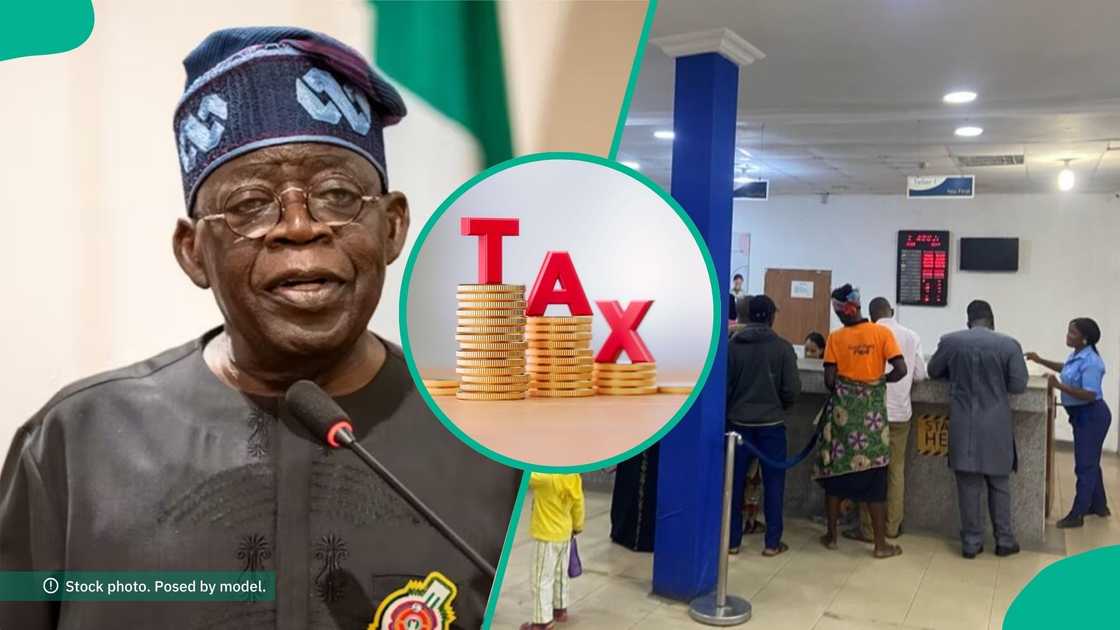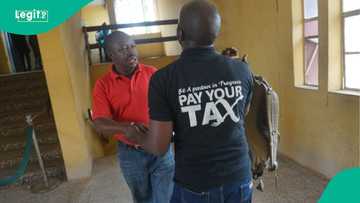FG Clarifies 5 False Claims on New Tax Law, Denies Plan To Debit Bank Accounts
- There will be a new tax law in Nigeria from January 2026, and some worry it could bring a heavier burden
- The federal government has allayed these fears, noting that Nigerians will pay less or no tax, with VAT removed from food, education, and healthcare
- Claims of new taxes, bank debits, or higher inflation have also been debunked by Taiwo Oyedele
Legit.ng journalist Dave Ibemere has over a decade of experience in business journalism, with in-depth knowledge of the Nigerian economy, stocks, and general market trends.
The federal government has clarified that the new tax reforms taking effect in January 2026 will reduce, not increase, the tax burden for most Nigerians.

Source: UGC
In a message shared on X, Taiwo Oyedele, Chairman of Nigeria's Presidential Committee on Fiscal Policy and Tax Reforms, noted that, contrary to some reports suggesting new taxes are coming, individuals, small businesses, and large corporations stand to benefit under the revised laws..
He explained that individuals in the bottom 98% of income earners will pay less or no tax, while VAT on essential items such as food, education, and healthcare will be removed, lowering the cost of living.
Also, small businesses will be exempt from corporate tax and VAT, allowing them to retain more of their earnings, and large companies will pay lower corporate tax and enjoy VAT credits on business costs.
His words:
"You you wonder why some say “this is not the right time for tax reform.” But why should we delay a reform that reduces the taxes Nigerians currently pay?"
Oyedele noted that despite the clear benefits, several false claims are circulating online, including:
- That new taxes will be introduced.
- That the government will debit citizens’ bank accounts.
- That remittances and gifts will now be taxed.
- That online earners are the primary targets.
- That inflation will worsen due to the reform.

Source: Twitter
Implications of low tax knowledge
Oyedele warn that such misinformation can lead to financial losses.
He added:
" Good news doesn’t trend, sensational misinformation does, often to the benefit of the creator but at the expense of their followers. Unfortunately, many people fall victim.
"In one instance, an individual declined to participate in a bank’s rights issue, fearing a 30% Capital Gains Tax –a tax from which he was completely exempt.
"With low tax awareness in the country, citizens are urged to verify information before acting. “When they claim new taxes are coming, ask them to specify which tax and for whom."
Tinubu suspends 15% import duty on petrol
Earlier, Legit.ng reported that the Federal Government has suspended the planned 15% import duty on Premium Motor Spirit (PMS) and Automotive Gas Oil (Diesel), a decision experts say could ease fuel prices across Nigeria.
The Nigerian Midstream and Downstream Petroleum Regulatory Authority (NMDPRA) confirmed this in a statement posted on its official X handle.
The policy triggered widespread concern from depot owners and fuel marketers, who warned that petrol prices could exceed N1,000 per litre if implemented.
Many operators argued that the duty would make imports unprofitable, especially as the Dangote Refinery’s lower prices continue to dominate the market.
Proofreading by James Ojo, copy editor at Legit.ng.
Source: Legit.ng



